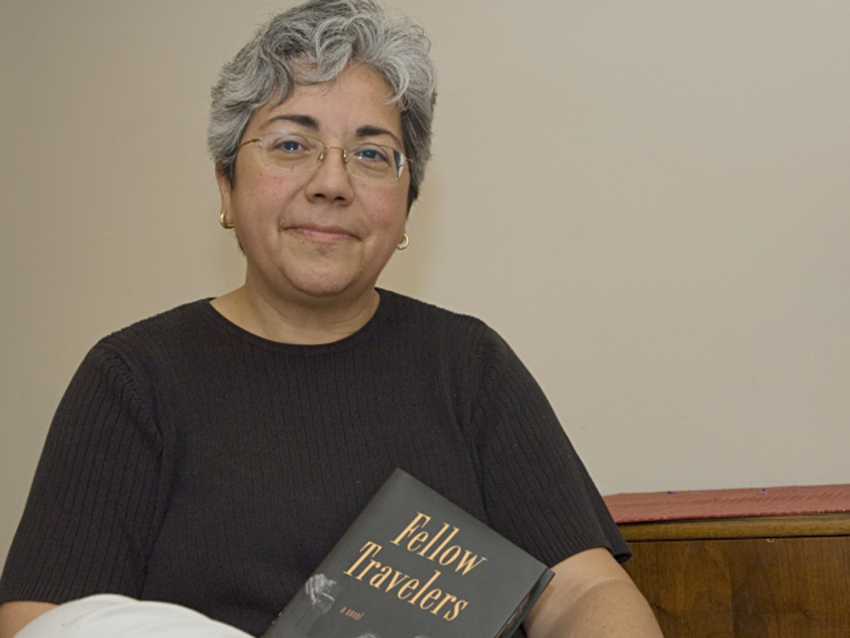In the late ’80s, much of the LGBT community was cloaked in fear and sadness. President Ronald Reagan continued to ignore the mounting AIDS crisis while the Supreme Court upheld sodomy laws, referring to homosexual sex as “the infamous crime against nature” in 1986. One year later, hundreds of thousands of people participated in “The Great March” on Washington D.C. to draw national attention to LGBT rights.
In the sea of people was Letitia Gomez. She arrived in D.C. 11 days before the march, ready to begin a life of activism that took root 10 years earlier at UT.
“There was a lot of sadness, a lot of anger,” Gomez said. “The government wasn’t doing much about HIV/AIDS — it felt so urgent. To me, it was just important [for LGBT people] to be visible, to see other people like me there. It was so wonderful just realizing that I wasn’t the only one.”
Raised in a Catholic household on the west side of San Antonio, Gomez knew her mother expected her to grow up, get married and have children. When she came out to her mother, Gomez said they had a “big cry” together.
“I really thought she was going to disown me,” Gomez said. “I feel really grateful that she decided it was most important just to love me and accept me as I was. But she was always afraid that I’d be harassed or killed. When Texas reinstated the sodomy law, she called me crying, saying ‘You’re a criminal in Texas.’”
She left San Antonio to transfer to UT in 1976 and witnessed the discrimination of LGBT people firsthand. Even within that community, Gomez said Chicanos struggled to find acceptance. At bars, one of the few places Gomez said LGBT people felt safe hanging out openly, Latinos were often asked for two types of ID were turned away.
“It felt like the government didn’t care about us, and many of us felt that about the larger, white gay community as well,” Gomez said. “We just didn’t have any of the rights we
have today.”
Gomez and her friends began marching with the Texas Farm Workers Union and discussing LGBT rights, inspired by her mother’s involvement with Latino civil
rights organizations.
She eventually moved to Houston, where Gomez and her friends formed the Gay Chicano Caucus to shed light on the unfair treatment of LGBT Latinos. From there, she said the caucus “kicked off [the next] 10 years of activist work.”
Gomez’s momentum carried her to D.C., where she served on the National Lesbian and Gay Health Association, the Latino Civil Rights Task Force and founded the National Latino/a Lesbian and Gay Organization. After 40 years of activist work, Gomez said she’s proud of how much community engagement she has accomplished.
“So much has changed,” Gomez said. “It has a lot to do with organizing and activism, supporting the institutions in the gay and lesbian community that have helped advance those causes.”
Following Trump’s election, Gomez said she fears a more conservative Supreme Court will threaten that progress.
“We just have to be vigilant,” Gomez said. “We spent the last 30 years fighting for these things — now we have to make sure they aren’t taken away. It’s so important for us to speak out and use the avenues of protest if we see something that is unfair or unjust. That’s something I learned at UT.”















